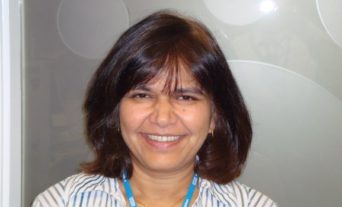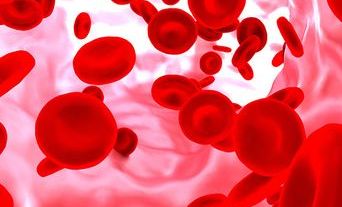Workforce needs
There are many drivers that increase the demand for pathology services. The pathology workload is growing rapidly, placing demands on the consultant workforce capacity. Several specialties highlight significant gaps in their senior workforce, which are expected to grow due to imminent retirements.
There is an urgent need to bridge this gap.
A standout response to meeting that need has come from consultant scientists. Scientists now lead services in a variety of specialties. The role of consultant scientists is very well established in some pathology specialties, although the understanding of how these roles can complement their medical colleagues is still growing in other areas.
The pathology workload is growing rapidly, placing demands on the consultant workforce capacity. There is an urgent need to bridge this gap.
Training paths
Many scientists complete their training to become a consultant outside of a formal training programme. Consultant scientists are required to obtain Fellowship of the Royal College of Pathologists, along with gaining leadership and research experience and qualifications.
These scientists then become eligible to apply for Higher Specialist Scientist (HSS) equivalence, which is run through the Academy of Healthcare Science (AHCS), and to join the HSS Register.
To achieve equivalence, scientists need to give evidence of their abilities and experience against the HSS Standards of Proficiency, which are held by the AHCS.
A challenge we face to meeting these requirements has been the lack of funding or protected time for these scientists.
Job vacancies
Since January 2023, a fortnightly search of NHS jobs was conducted using the search term ‘consultant scientist’. The number of posts in each pathology specialty is presented in Table 1.
Table 1. Number of NHS consultant scientist job posts advertised in 2023.
| Specialty | No. of posts | Bandings | Readvertised | Eligibility |
|---|---|---|---|---|
| Microbiology | 13 | 8c, 8d or medical | 4 | FRCPath, HSS Register |
| Biochemistry | 11 | 8c, 8d | 1 | FRCPath, PhD |
| Genetics | 4 | 8c, 8d | 0 | FRCPath |
| Immunology | 3 | 8c, 8d | 0 | FRCPath, HSS Register |
| Histopathology | 1 | 8c | 0 | DipRCPath |
| H&i | 1 | 8c | 0 | FRCPath or working towards |
| Transfusion | 1 | 8c | 0 | FRCPath, DClinSci, HSS Register |
Eligibility criteria for consultant scientist posts vary between and within specialties, although RCPath Fellowship is a common requirement for most positions. Within microbiology, more than half the posts were advertised as roles that could be filled by either a suitably qualified medic or a scientist, which demonstrates the overlapping nature of these roles. In other pathology specialties, this was not the case, owing to differing responsibilities of consultant scientists in these fields.
This data does not include posts advertised only internally, those with very short closing dates or those advertised on alternative sites, so the real number of posts may be significantly higher. It also does not include those vacancies that are carried by departments and are therefore unadvertised.
However, the data does demonstrate the demand for consultant scientists and that, in some cases, posts remain unfilled following the initial advert.
This is a demand that could be met with support from the Higher Specialist Scientist Training Programme (HSST).
It is essential that workplaces are offered the required support to train individuals, whether that be through formal schemes such as the HSST or HSS equivalence.
Higher Specialist Scientific Training
The HSST is a 5-year integrated programme with funding from NHS England to support training. This funding includes a £13,260 per year training allowance along with a funded academic qualification. For HSSTs in life sciences, it is necessary to complete a PgDip in Leadership and Management, gain RCPath Fellowship in their specialty through examination and achieve a doctoral-level research project (unless they already hold a relevant PhD), which results in a professional doctorate (DClinSci).
Previous Bulletin articles from January 2021 and July 2022 have covered the key aspects and successes of the HSST programme in preparing healthcare scientists for consultant posts. HSST candidates receive protected time (52 days per year) to complete the elements of the programme; however, they also have significant service delivery roles, often leading large services.
The workplace element of their training requires them to evidence meeting the Higher Specialist Scientific Standards of Proficiency in a portfolio. Completion of the HSST programme permits entry to the HSS Register held by the AHCS.
The number of HSSTs on the programme is growing, with some now completing the programme and entering the workforce. This is now starting to address some of the workforce challenges. The numbers of trainees within the pathology specialties are presented in Table 2.
Table 2. HSST trainees in the pathology specialties.
| Specialty | No. completed (early cohorts) | No. on programme (subsequent cohorts) |
|---|---|---|
| Biochemistry | 3 | 30 |
| Microbiology | 6 | 41 |
| Virology | 3 | 8 |
| Immunology | 4 | 14 |
| Genetics | 10 | 19 |
| H&I | 5 | 20 |
| Haematology | 3 | 11 |
| Transfusion science | 2 | 15 |
| Reproductive science | 1 | 11 |
| Molecular pathology of acquired disease | 4 | 15 |
| Molecular pathology of infection | 0 | 1 |
The number of completed HSSTs is currently small; however, this is expanding and is set to grow even further. The importance of the role of consultant scientists has been recognised in the training plans of the NHS Long Term Workforce Plan, with the objectives of training, retaining and reforming as outlined below.
Implementation of this workforce plan can be supported by increased numbers of consultant scientists through the expansion of HSST training posts. Retaining consultant scientists can be achieved by improving the representation of science in leadership across the NHS. Reforming the system can be achieved by reviewing training routes and supporting opportunities for new consultant scientist roles.
Health Education and Improvement Wales has published recommendations for consultant clinical scientists, focusing on the role, education, training, requirements and recruitment of consultant scientists. One recommendation is that, from 2023, all individuals seeking their first appointment to a consultant clinical scientist post in Wales must be on the HSS Register. This paper demonstrates further recognition of the importance of growing this workforce and recognising the value of the HSS Register.
As we plan the workforce of the future NHS, we need to ensure that sufficient training places are available to meet the needs of consultant scientists. In addition, where gaps are identified, it is essential that workplaces are offered the required support to train individuals, whether that be through formal schemes such as the HSST or HSS equivalence.
We look forward to supporting this programme and realising this opportunity to deepen the synergy between scientists and medics within pathology to support the delivery of the science behind the cure.





